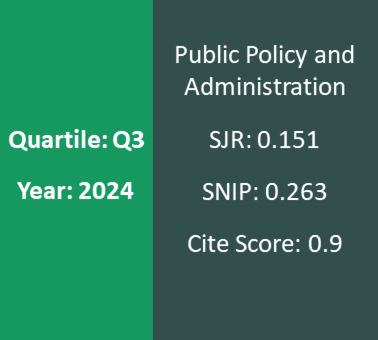Socially Responsible Organizational Governance in the Public Sector
DOI:
https://doi.org/10.5755/j01.ppaa.19.3.27713Keywords:
Corporate Social Responsibility, Public Sector, New Public Governance, Organizational Governance, StakeholdersAbstract
The present paper aims to examine the theoretical assumptions of socially responsible organizational governance in the public sector. In public authorities, corporate social responsibility is a relatively new phenomenon. Therefore, the paper focuses on the interaction between social responsibility and the New Public Governance. The article puts forward the assumption that the principles of governance of public goods and public services provided by the public sector are very close in content to the concept of social responsibility. The goal of the public governance process is efficiency and effectiveness not only in public administration institutions, but also in building a welfare society. In this context, the New public governance is in line with the principles of social responsibility. The similarities between the new public governance and social responsibility can be recognized in an understanding the values, processes and elements the primary standards of which are accountability, openness, efficiency, responsibility, compliance with procedural norms, division of power (involvement of stakeholders). The article also discusses the concept and characteristics of corporate social responsibility and provides criticism on the CSR phenomenon.





